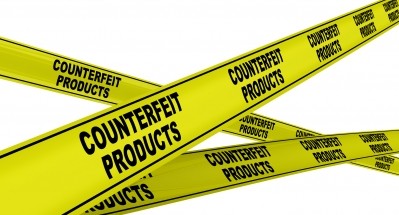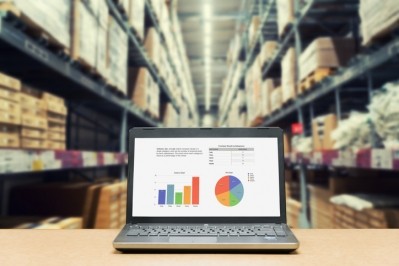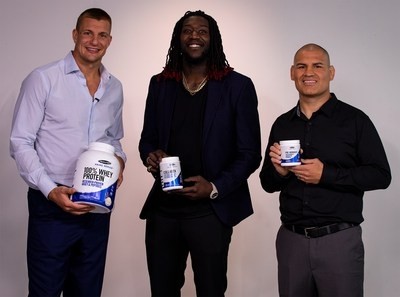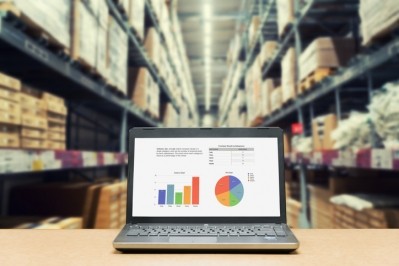What Amazon’s email about counterfeit supplements might mean to the industry
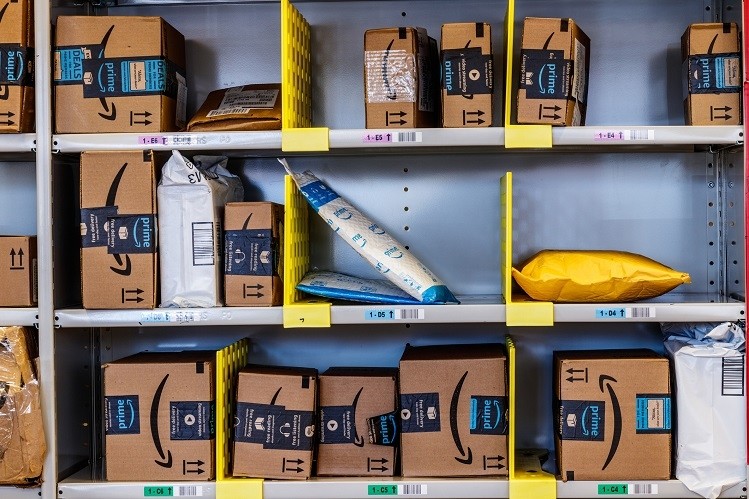
Tech news outlet Wired reported this weekend that Amazon confirmed it sent out the email to several shoppers but declined to specify the number of customers impacted.
Since then, news outlets from USA Today to Business Insider have picked up the story, focusing on Amazon’s warning about ‘fake supplements’ sold on its site.
According to Wired’s account, a shopper named Anne Marie Bressler bought what she thought was the Align probiotic manufactured by Procter & Gamble.
She had apparently bought a fake product sold by a third-party seller. As Yahoo! Finance reported, third-party sellers now make up 58% of Amazon’s total sales compared to 31% ten years ago. To shoppers, the line between goods sold by third-party sellers and Amazon are blurred, as they’re all shipped by Amazon and qualify for Amazon Prime.
An automated email from Amazon to Bressler, who bought the counterfeit product two weeks before, said “If you still have this product, we recommend that you stop using it immediately and dispose of the item.” (Click HERE to read Wired’s story).
“I have never heard about something like this happening before, but I just don’t know,” Steve Mister, president and CEO of the Council for Responsible Nutrition (CRN), one of the largest dietary supplement industry trade groups to which Procter & Gamble is a member, told NutraIngredients-USA.
A statement from Mollie C. Wheeler, North America Communications for Procter & Gamble's Personal Health Care division, stated that "Amazon has taken action against the third-party suppliers of that counterfeit product and have removed their ability to supply products in Amazon stores."
"Amazon has confirmed they have stopped third party sales of the Align products in question and Amazon is only selling Align 56 and 63 count products that have been received directly from P&G manufacturing facilities. P&G and the Align brand are fully committed to protecting consumers from counterfeit products. The Align brand is enrolled in both Amazon’s Brand Registry and Project Zero programs." (Read more about Amazon's Project Zero program in the info box below)
As of press time, Amazon has not responded to our request for comments.
Trust Transparency Center: ‘Amazon has made barrier to entry too easy’
To supplement industry stakeholders, Amazon’s action on counterfeit products sold on its site is something long overdue.
For several years, consulting firm Trust Transparency Center has tried to engage with Amazon about the counterfeit supplements found on its pages, said the firm’s managing partner Scott Steinford.
Through blog posts, Steinford said Trust Transparency Center has asked Amazon to be ‘more responsible’ in its vetting process of making sure that the supplements offered online are reputable and meet FDA guidelines, “just like its Whole Foods subsidiary would do.”
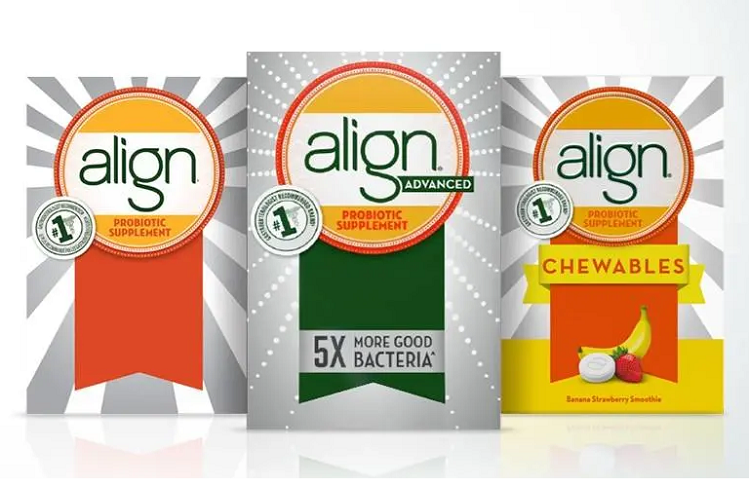
“But we haven’t received anything from them, other than [a statement and the service agreement] that Amazon lets the marketplace and buyers decide which products are of quality and which aren’t,” Steinford told us.
“My contention for the last two years is that that works for belt buckles and cowboy boots, but it doesn’t work for ingestibles.”
According to Steinford, Amazon has made the barrier to entry in the supplements space too easy, potentially casting a bad light over the whole supplements sector because it means non-efficacious and potentially harmful products are sold as ‘supplements.’
It’s an issue harder to come across in bricks-and-mortar retailers, which have buyers and managers who act as gatekeepers to select what products make it onto the limited shelf space.
According to Trust Transparency’s calculations, there are 16,000 supplement brands sold on Amazon’s unlimited digital shelf space, compared to immediate runner-up iHerb which has around only 3,000 brands. Steinford’s firm started monitoring supplement inventory on Amazon monthly since January 2018.
“There’s a big difference between the two, which tells me there are a lot more products out there that may not be following the vetting process they should,” he added.
“[We hope] this will create a changing atmosphere within Amazon, where they’ll be a part of the solution instead of a continued part of the problem.”
Wired article ‘does a disservice’
Like Steinford, CRN’s Mister hopes that the counterfeit Align products incident will be a wakeup call for Amazon that there are issues about some of the third parties selling on its platform.
“We have been aware of these issues in the past. We’ve had several members come to us with documented cases of counterfeited goods being sold on the platform,” he told us.
“Our legal committee has discussed this to figure out what role we can play to help our companies avoid these situations.”
Amazon tackles counterfeit products with Project Zero
In February of this year, Amazon announced the Project Zero initiative, which the company described in a blog post as "a new program that empowers brands to help drive counterfeits to zero."
The scheme combines machine learning with data that brands can input based on their own knowledge of their intellectual property and how best to detect counterfeits of their products.
When it was first announced, Amazon said it is an invite-only service. As of the publishing of this article, Amazon's Project Zero landing page says it is still invite-only, and includes a link for companies to join its waitlist. Procter & Gamble's Align brand is enrolled in the Project Zero program.
Mister brought up his concerns on how Wired, and many other news outlets, reported on the issue. “It tries to pull in the notion that the products are not pre-tested by FDA before they go on the market,” he argued.
“That’s not the issue at all. You could’ve tested P&G’s Align probiotics for weeks and found out they were exactly what they were portrayed to be on the label and be of high quality,” Mister added.
“But if someone comes along with a counterfeit, that evades the whole system, and no amount of pre-testing will address that issue.”
Will the giant work with the industry?
Amazon’s email regarding counterfeit Align is a glimmer of hope to many industry stakeholders that the ecommerce giant will increase the policing of products it sells.
George Paraskevakos, executive director of the International Probiotics Association, a trade group, said the event should be an eye opener to all available online platforms selling probiotic supplements.
“IPA is currently working on creating a program which will involve outreach to retailers in order to educate and inform them on what to look for in regards to evaluating quality probiotic products,” he told us in an email.
“Taking from the already published labelling guidelines and newly introduced manufacturing best practices, IPA intends to complete a quality certification program which will also include analytical guidelines in order to have a specific program that will address probiotic products.”
CRN’s Mister hopes that Amazon, as a significant player in supplement retailing, will increase its participation in industry trade groups and events.
An attendee list supplied to NutraIngredients-USA of a regulatory summit which CRN co-hosted with other trade groups in Washington DC back in May showed that several Amazon employees registered, a rare example of Amazon’s presence in an industry event.
“We were delighted to have them at the Regulatory Summit because we think that the more people who work in Amazon understand about the industry, the more they understand about how the industry is regulated, the more they know about the products, then the more aware they are how to protect our companies from incidents like this,” Mister said.
“But Amazon is a behemoth company with many, many sections. The people who run their third-party platform are not the same people who run the Amazon that sells directly to consumers,” he added.
“They have so many departments that in some way touch supplements, and they might not even be talking to each other.”
The Natural Products Association (NPA), another trade group, circulated a statement saying that it has offered resources to help Amazon with its counterfeiting problem.
“We are still learning about what exactly the problems Amazon is dealing with related to these warnings, but what we do know is that there’s a much more systematic approach to protecting consumers from bad actors,” said Daniel Fabricant, PhD, president and CEO of NPA in the statement.
“We met with Amazon over a year ago to encourage their participation in the Supplement Safety and Compliance Initiative, to play a role, industry-wide to establish a system of continuous improvement, that manufacturers and distributors must meet or exceed to be accepted in major retailers," he added. (Read more about the SSCI's origins, which includes involvement of Amazon subsidiary Whole Foods HERE).
"We’re confident that NPA membership and all of the benefits and information that comes with it could offer Amazon a more streamlined approach to handling bad actors.”
If a consumer is harmed by a counterfeit supplement bought online, who is liable?
One of the main concerns brands have about counterfeits of their products circulating online is the potential harm they might cause. Who will be liable, if such an event happens?
“If a person is injured by a dietary supplement or any product, who he or she can sue is largely determined by state law," Ivan Wasserman, attorney and managing partner at the practice Amin Talati Wasserman, LLP, told us.
"In states that have 'strict liability,' any retailer, distributor or manufacturer of a defective product is liable to a person injured by that product regardless of whether it did anything wrong or had any knowledge that the product was defective.
"That said, even in strict liability states, courts have generally treated Amazon differently than brick-and-mortar retailers for products sold by third party vendors on its platform," he added.
Interesting to note is that on July 3rd, a ruling from the 3rd US Circuit Court of Appeals in Philadelphia ruled that Amazon can be held accountable for faulty third-party sales. According to a Reuters report on the ruling, Circuit Judge Jane Richards Roth wrote that Amazon may be liable because its business model “enables third-party vendors to conceal themselves from the customer, leaving customers injured by defective products with no direct recourse to the third-party vendor.”
"This new decision may change that, but since it is only in one circuit it remains to be seen if other circuits will follow-suit and if the decision will be appealed. The sad thing is these case the counterfeiter is the real villain, and it can prove to be impossible for an injured consumer to find him in his hidden lair,” Wasserman said.

